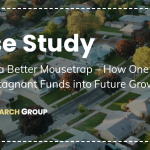Settling a construction defect lawsuit can provide a significant financial windfall for a community or condominium association. However, managing these funds responsibly can be a daunting task.
When your association receives a settlement, it is not just receiving a monetary award—it is acquiring a fiduciary responsibility to manage those funds wisely. This duty requires the board to act prudently and in the best interest of the community, focusing on protecting, maintaining, and enhancing the association’s assets.
It is crucial to ensure that the money is used effectively to enhance the property’s value and to benefit all members of the association. Here are some suggestions for board members and associations to safely invest and manage the funds received from construction defect settlements.
1. Establish a Clear Plan
Before making any investment, the condominium association should develop a comprehensive plan that outlines the intended use of the funds. This plan should be based on a thorough assessment of the building’s needs, potential future expenses, and any legal stipulations tied to the settlement money. Engaging a professional property management consultant, structural engineer, or reconstruction team to inspect the property and recommend necessary repairs or upgrades is advisable.
2. Prioritize Repairs and Upgrades
Typically, the primary use of construction defect settlement funds should be to address any life, health or safety related defects or damage outlined in the lawsuit.
Prioritizing these repairs ensures that the building meets safety standards, specific codes and enhances living conditions, which can also help in maintaining or increasing property values. Any leftover funds might be directed towards upgrades that improve energy efficiency, aesthetic appeal, or modernization of facilities. In addition, remember that your Reserve Fund should be reimbursed if you have borrowed funds to facilitate or pay for any fees, destructive testing, or legal expenses.
3. Create a Settlement or Reconstruction Fund
It is wise for the association to establish a separate and segregated Reconstruction Fund versus allocating the settlement proceeds into your reserve fund. This will provide transparency and accounting for items covered in the lawsuit versus regular reserve expenditures. This fund acts as your financial cushion in lieu of reserves that may help cover unexpected repairs and maintenance issues in the future. Remember, having a well- funded reserve is also reassuring to current and prospective homeowners and can positively influence property values.
4. Consult Legal and Financial Advisors
Given the complexities of fiscal management and legal compliance, it is prudent for the board to seek advice from qualified professionals. Investing and managing a hefty sum of money involves complex legal and financial considerations. Hiring knowledgeable legal and financial advisors that specialize in HOA Finance is crucial. They can provide guidance on compliance with state laws and regulations, tax implications, and investment strategies. These professionals will also ensure that the association’s decisions are transparent and in the best interests of its members.
Over the last 40 years, we, at The March Group, have developed a “Reconstruction Analysis” process that combines all of the work to be accomplished, overlays a relatively safe and secure investment process, and provides liquidity for timely payment to contractors, consultants, and others involved in the reconstruction process.
5. Consider Safe Investment Options
In line with fiduciary duties, investments should be conservative to minimize risk. The goal is to earn a reasonable return without jeopardizing the principal, thereby ensuring funds are available when needed.
For the investment portion of the funds, the association should focus on safety of principal and relatively liquid investment options. Short-term U.S. Treasury Bills, insured money market funds, and FDIC insured Certificates of Deposit can offer returns without exposing the association to excessive risk. The key is to ensure that the funds remain accessible without any penalties in case they are needed for sudden repairs.
6. Communicate with Homeowners
Fulfilling fiduciary duties also involves maintaining transparency with the community members about how funds are managed. Regular updates through meetings, newsletters, or online platforms about financial decisions and the status of fund utilization help build trust and ensure that residents are informed and engaged.
Transparency is one key to success. Regularly scheduled communication with homeowners about how the funds are being used and invested not only builds trust but also ensures that the decisions made by the board are aligned with the preferences of the association members. Consider meetings or updates through newsletters, virtual or in- person meetings, or an online portal.
7. Review and Adjust the Strategy Regularly
The initial investment strategy should never be static. The association should regularly review the investments and the ongoing needs of the property with their financial advisor. Economic conditions and the priorities of the association can and will change, necessitating adjustments to the investment strategy to protect and grow the funds effectively. In almost every reconstruction project we have been involved with there are always changes and the best laid plans of mice and men will always be subject to alterations and inevitable delays.
Conclusion
The receipt of construction defect settlement funds places a significant responsibility on association board members and management professionals.
Receiving your settlement offers an association a unique opportunity to rectify issues and enhance the property’s value. By planning carefully, prioritizing necessary repairs, consulting professionals, investing wisely, and maintaining transparency with association members, the board can ensure that the funds serve the best interests of the community. These steps will not only safeguard your investments but will also contribute to a more robust and cohesive and valuable community.
Helping You Build a Firm Financial Foundation For Your Future
Nico F. March is the Managing Director for The March Group, LLC. He has worked with Community Associations since 1974 and has served on several Boards, including the Board of Directors for the Community Association Institute (CAI), San Diego Chapter. His team has specialized in Corporate Cash and Association Financial Management since 1982 and has assisted over 1000 Associations, Nonprofits and Timeshares invest over $4 Billion in reserve, operating and reconstruction funds. Nico and his team work out of their San Diego and Wyoming offices and may be reached at 888.811.6501 or email [email protected] for further information and consultations.
The March Group is not a tax or legal advisor. We will be glad to work with your professional CPA and Attorney to help you with your financial goals. Neither the information contained herein nor any opinion expressed shall be construed to constitute an offer to sell or a solicitation to buy any securities mentioned herein. Nico March is a registered representative with, and securities are offered through LPL Financial, Member FINRA/SIPC.
The opinions voiced in this material are for general information only and are not intended to provide specific advice or recommendations for any individual or organization.
LPL Approval 587818-1



